From AZNano:
Scientists from the University of Basel have developed nanoparticles that have the potential to serve as contrast agents for magnetic resonance imaging.
In comparison to the actual contrast agents, these new nanoparticles produce around ten times more contrast and are responsive to particular environments. The results have been published in the journal Chemical Communications.
Imaging tissues obtained through magnetic resonance imaging (MRI) is improved by contrast agents. The identification of structural details in the body is majorly enhanced by contrast agents, and the current substances develop insufficient contrast for the identification of diseases in its early stages.
The existing contrast agents are not capable of sensing their biochemical environments and this is considered to be another limitation. Researchers from the Department of Chemistry at the University of Basel have created nanoparticles capable of serving as “smart” contrast agents for MRI.
Recent News
According to Researchers, Your Breathing Patterns Could Hold the Key to Better Memory
Breathing synchronizes brain waves that support memory consolidation. A new study from Northwestern Medicine reports that, much like a conductor harmonizes various instruments in an orchestra to create a symphony, breathing [...]
The Hidden Culprit Behind Alzheimer’s Revealed: Microglia Under the Microscope
Researchers at the CUNY Graduate Center have made a groundbreaking discovery in Alzheimer’s disease research, identifying a critical link between cellular stress in the brain and disease progression. Their study focuses [...]
“Mirror Bacteria” Warning: A New Kind of Life Could Pose a Global Threat
Mirror life, a concept involving synthetic organisms with reversed molecular structures, carries significant risks despite its potential for medical advancements. Experts warn that mirror bacteria could escape natural biological [...]
Lingering Viral Fragments: The Hidden Cause of Long COVID
Long COVID, affecting 5-10% of COVID-19 patients, might be caused by the enduring presence of the virus in the body. Research suggests that viral fragments, possibly live, linger and lead to symptoms. Addressing [...]
Hidden Scars: How COVID Lockdowns Altered Teen Brains Forever
Research from the University of Washington revealed that COVID-19 lockdowns led to accelerated cortical thinning in adolescents, impacting brain development significantly. This effect was more pronounced in females than males, raising concerns about [...]
Simple Blood Test To Detect Dementia Before Symptoms Appear
UCLA researchers have identified placental growth factor (PlGF) as a potential blood biomarker for early detection of cognitive impairment and dementia. High PlGF levels correlate with increased vascular permeability, suggesting [...]
Investing Goldman Sachs asks ‘Is curing patients a sustainable business model?’
Goldman Sachs analysts attempted to address a touchy subject for biotech companies, especially those involved in the pioneering “gene therapy” treatment: cures could be bad for business in the [...]
The risks of reversed chirality: Study highlights dangers of mirror organisms
A groundbreaking study evaluates the feasibility, risks, and ethical considerations of creating mirror bacteria with reversed chirality, highlighting potential threats to health and ecosystems. In a recent study published [...]
Alarming Mutation in H5N1 Virus Raises Pandemic Red Flags
NIH-funded study concludes that the risk of human infection remains low A recent study published in Science and funded by the National Institutes of Health (NIH) has found that a single alteration in [...]
Scientists Discover Genetic Changes Linked to Autism, Schizophrenia
The Tbx1 gene influences brain volume and social behavior in autism and schizophrenia, with its deficiency linked to amygdala shrinkage and impaired social incentive evaluation. A study published in Molecular [...]
How much permafrost will melt this century, and where will its carbon go?
Among the many things global warming will be melting this century—sea ice, land glaciers and tourist businesses in seaside towns across the world—is permafrost. Lying underneath 15% of the [...]
A Physics Discovery So Strange It’s Changing Quantum Theory
MIT physicists surprised to discover electrons in pentalayer graphene can exhibit fractional charge. New theoretical research from MIT physicists explains how it could work, suggesting that electron interactions in confined two-dimensional spaces [...]
Inside the Nano-Universe: New 3D X-Ray Imaging Transforms Material Science
A cutting-edge X-ray method reveals the 3D orientation of nanoscale material structures, offering fresh insights into their functionality. Researchers at the Swiss Light Source (SLS) have developed a groundbreaking technique called [...]
X-chromosome study reveals hidden genetic links to Alzheimer’s disease
Despite decades of research, the X-chromosome’s impact on Alzheimer’s was largely ignored until now. Explore how seven newly discovered genetic loci could revolutionize our understanding of the disease. Conventional [...]
The Unresolved Puzzle of Long COVID: 30% of Young People Still Suffer After Two Years
A UCL study found that 70% of young people with long Covid recovered within 24 months, but recovery was less likely among older teenagers, females, and those from deprived [...]
Needle-Free: New Nano-Vaccine Effective Against All COVID-19 Variants
A new nano-vaccine developed by TAU and the University of Lisbon offers a needle-free, room-temperature-storable solution against COVID-19, targeting all key variants effectively. Professor Ronit Satchi-Fainaro’s lab at Tel Aviv [...]
Photoacoustic PDA-ICG Nanoprobe for Detecting Senescent Cells in Cancer
A study in Scientific Reports evaluated a photoacoustic polydopamine-indocyanine green (PDA-ICG) nanoprobe for detecting senescent cells. Senescent cells play a role in tumor progression and therapeutic resistance, with potential adverse effects [...]
How Dysregulated Cell Signaling Causes Disease
Cell signaling is crucial for cells to communicate and function correctly. Disruptions in these pathways, caused by genetic mutations or environmental factors, can lead to uncontrolled cell growth, improper [...]
Scientists Develop Super-Strong, Eco-Friendly Plastic That Bacteria Can Eat
Researchers at the Weizmann Institute have developed a biodegradable composite material that could play a significant role in addressing the global plastic waste crisis. Billions of tons of plastic [...]
Building a “Google Maps” for Biology: Human Cell Atlas Revolutionizes Medicine
New research from the Human Cell Atlas offers insights into cell development, disease mechanisms, and genetic influences, enhancing our understanding of human biology and health. The Human Cell Atlas [...]
Bioeconomic Potential: Scientists Just Found 140 Reasons to Love Spider Venom
Researchers at the LOEWE Centre for Translational Biodiversity Genomics (TBG) have discovered a significant diversity of enzymes in spider venom, previously overshadowed by the focus on neurotoxins. These enzymes, [...]
Quantum Algorithms and the Future of Precision Medicine
Precision medicine is reshaping healthcare by tailoring treatments to individual patients based on their unique genetic, environmental, and lifestyle factors. At the forefront of this revolution, the integration of [...]
Scientists Have Discovered a Simple Supplement That Causes Prostate Cancer Cells To Self-Destruct
Menadione, a vitamin K precursor, shows promise in slowing prostate cancer in mice by disrupting cancer cell survival processes, with potential applications for human treatment and myotubular myopathy therapy. [...]
Scientists reveal structural link for initiation of protein synthesis in bacteria
Within a cell, DNA carries the genetic code for building proteins. To build proteins, the cell makes a copy of DNA, called mRNA. Then, another molecule called a ribosome [...]
Vaping Isn’t Safe: Scientists Uncover Alarming Vascular Risks
Smoking and vaping impair vascular function, even without nicotine, with the most significant effects seen in nicotine-containing e-cigarettes. Researchers recommend avoiding both for better health. Researchers have discovered immediate [...]
Twice-Yearly Lenacapavir for PrEP Reduces HIV Infections by 96%
Twice-yearly injections of the capsid inhibitor drug lenacapavir can prevent the vast majority of HIV infections, according to a Phase 3 clinical trial published Wednesday in the New England [...]
Did Social Distancing Begin 6,000 Years Ago? Neolithic Villagers May Have Invented It
Social distancing may have roots 6,000 years ago, as research shows Neolithic villages like Nebelivka used clustered layouts to control disease spread. The phrase “social distancing” became widely recognized [...]
Decoding Alzheimer’s: The Arctic Mutation’s Role in Unusual Brain Structures
Researchers have uncovered how certain genetic mutations lead to unique spherical amyloid plaques in inherited forms of Alzheimer’s, offering insights that could advance our understanding of the disease and improve [...]
How Your “Lizard Brain” Fuels Overthinking and Social Anxiety
New research by Northwestern Medicine reveals how humans have evolved advanced brain regions to interpret others’ thoughts, connecting these areas with the amygdala, a part of the brain involved [...]
How Did Life Begin? Researchers Discover Game-Changing Clue
New research offers a potential explanation for the formation of early Earth protocells. Few questions have captivated humankind more than the mystery of life’s origins on Earth. How did [...]
Printable organic X-ray sensors may transform treatment for cancer patients
An international research team, led by the University of Wollongong (UOW), has found wearable organic X-ray sensors could offer safer radiotherapy protocols for cancer patients. More than 400 people [...]
Unlocking AI’s Potential: MIT’s New Algorithm Boosts Efficiency by 50x
MIT researchers have introduced an efficient reinforcement learning algorithm that enhances AI’s decision-making in complex scenarios, such as city traffic control. By strategically selecting optimal tasks for training, the algorithm [...]
Are Smaller Brains the Future? How AI Could Reshape Human Evolution
AI and Human Evolution As artificial intelligence (AI) becomes increasingly widespread and advanced, it prompts new questions about its impact on human life and society. A recent paper in The Quarterly Review [...]
Antibiotic activity altered by interaction with nanoplastics, new research shows
In a recent study published in Scientific Reports, researchers reported that drug adsorption on micro- and nano-plastics (MNPs) has severe consequences. Introduction Plastic degradation results in the formation of particles [...]
World First: Stem Cell Transplant Restores Vision in Multiple People
A radical stem cell transplant has significantly improved the blurry vision of three people with severe damage to their cornea. The clinical trial, which took place in Japan, is the first of [...]
Clinical Trial: Mushroom Supplement May Halt Prostate Cancer Growth
The bidirectional research examines both laboratory findings and human clinical trial data, revealing that the medicinal use of white button mushrooms reduces the type of cells that suppress the [...]
Scientists propose drug-free method to combat antibiotic-resistant bacteria
Recent estimates indicate that deadly antibiotic-resistant infections will rapidly escalate over the next quarter century. More than 1 million people died from drug-resistant infections each year from 1990 to [...]
New study shows how salmonella tricks gut defenses to cause infection
A new UC Davis Health study has uncovered how Salmonella bacteria, a major cause of food poisoning, can invade the gut even when protective bacteria are present. The research, published in [...]
Chlamydia vaccine shows early promise in mice
An experimental vaccine has shown promise in protecting against the sexually transmitted disease chlamydia, researchers report. Lab mice given the vaccine were able to rapidly clear subsequent chlamydia infections, [...]
Contradictory Discovery: Our Innate Immune System May Fuel Cancer Development
MSK researchers discovered that the innate immune system’s chronic activation due to issues in the Mre11 complex can lead to cancer, highlighting new therapeutic targets. In addition to defending [...]
New study links circadian gene variants to winter depression
Findings suggest that PER3 gene variants prevent adrenal adaptation to winter daylight, leading to serotonin disruption and depression-like behaviors. A recent study in Nature Metabolism used humanized mice with modified PERIOD3 [...]
Quantum Leap for MRI: Atomic Sensors Unlock New Imaging Potential
New atomic sensor technology enhances MRI quality control by tracking hyperpolarized molecules in real-time, with potential benefits for various scientific fields. Magnetic resonance imaging (MRI) is a fundamental tool [...]
MethylGPT unlocks DNA secrets for age and disease prediction
By harnessing advanced AI, MethylGPT decodes DNA methylation with unprecedented accuracy, offering new paths for age prediction, disease diagnosis, and personalized health interventions. In a recent study posted to [...]
“Astonishing” – Scientists Unveil First Blueprint of the Most Complex Molecular Machine in Human Biology
Researchers unveil the inner mechanisms of the most intricate and complex molecular machine in human biology. Scientists at the Centre for Genomic Regulation (CRG) in Barcelona have developed the [...]
Breakthrough research reveals how to target malignant DNA in aggressive cancers
Scientists have discovered a way to target elusive circular fragments of DNA that drive the survival of some of the most aggressive cancers, paving the way for future treatments. [...]
How bacteria trigger colon cancer
In a recent study published in Nature, scientists used murine models to investigate how certain bacteria, such as Escherichia coli strains that contain a polyketide synthase (pks) island encoding enzymes that produce [...]
Nanoparticles designed to trap and neutralise large amounts of SARS-CoV2
(Nanowerk News) Researchers from the IBB-UAB have developed a new class of nanostructures capable of trapping and neutralising large quantities of the SARS-CoV2 virus particles, both in liquid solutions [...]
Nanodiscs: What Are They and How Are They Shaping the Future of Medicine?
Nanodiscs are synthetic phospholipid particles with a distinct morphology and size that enhance their efficiency in drug delivery applications.1 First developed by Sligar et al. in the early 2000s, these model [...]
New Discovery Reveals How Ovarian Cancer Starves Immune Cells
Researchers discovered that ovarian tumors hinder T cells’ energy supply by trapping a key protein, blocking lipid uptake. A new approach to reprogram T cells could enhance immunotherapy for [...]
Innovative Drug-Design Strategies to Overcome Antibacterial Resistance
Antibacterial resistance occurs when antibiotics fail to treat bacterial infections. This incidence is considered one of the top global health threats, stemming from the misuse or overuse of antibiotics [...]
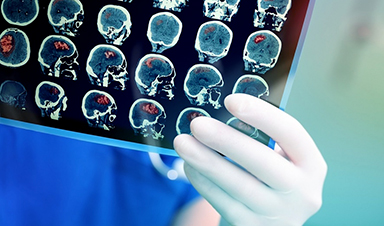
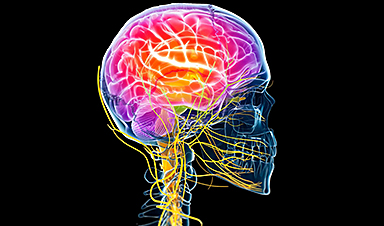
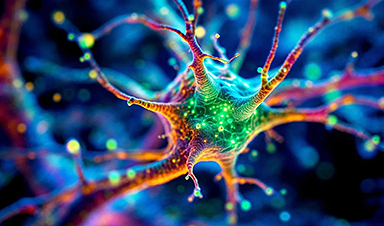
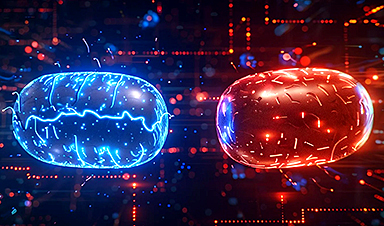

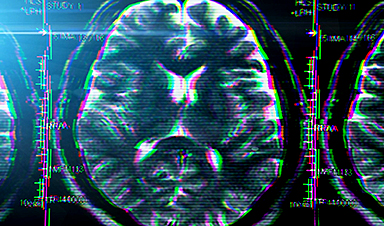
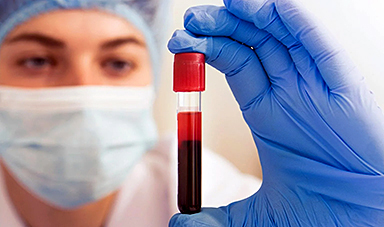



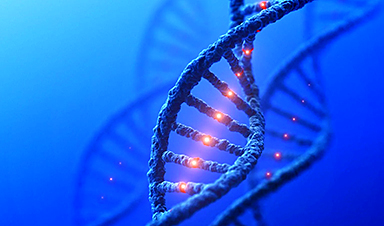
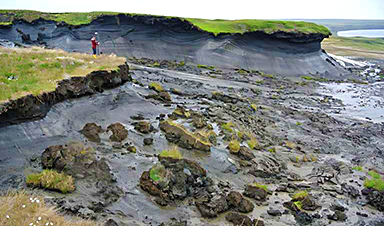
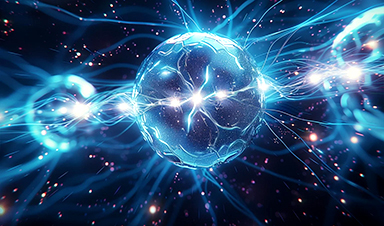
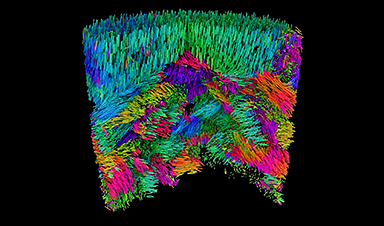


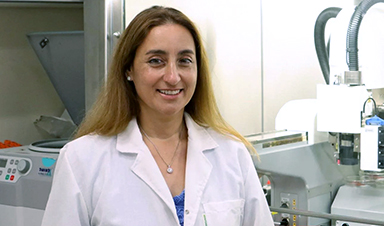
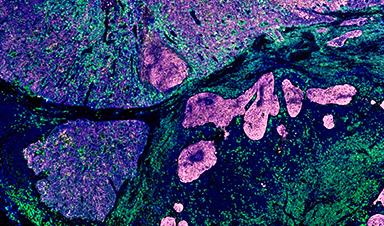
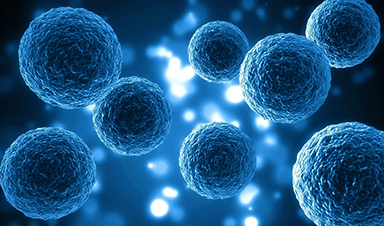

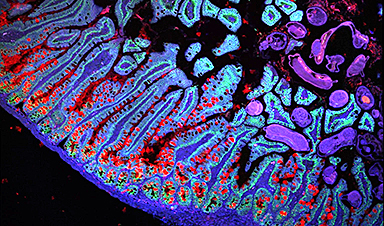

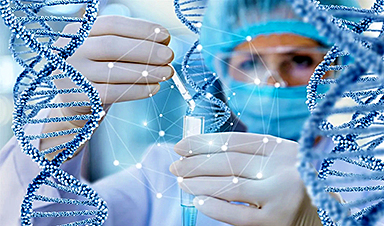

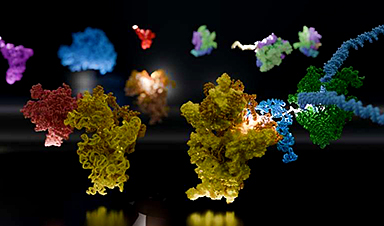



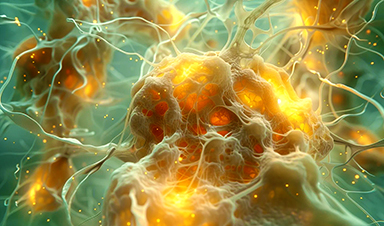
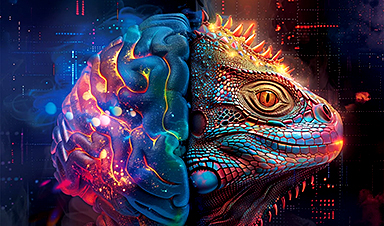
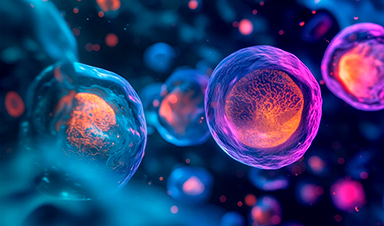
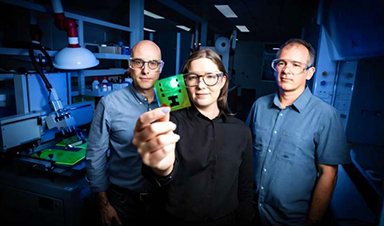

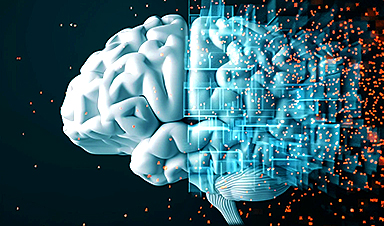

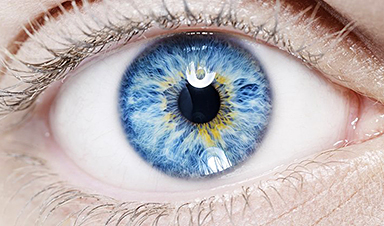
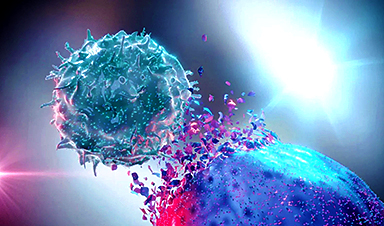
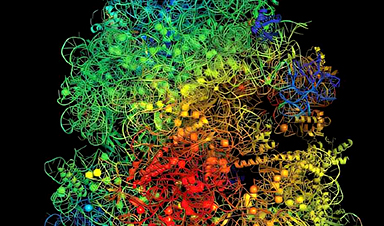
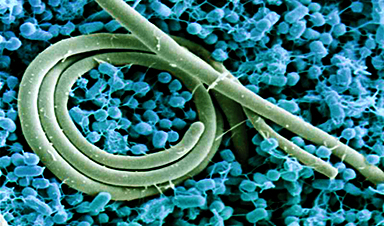



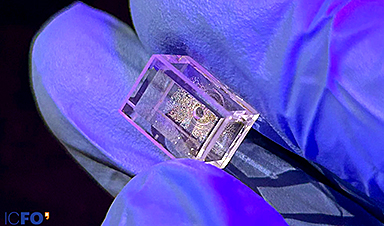

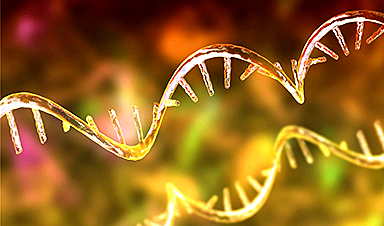


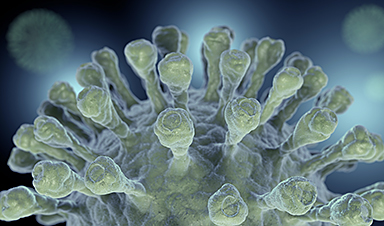
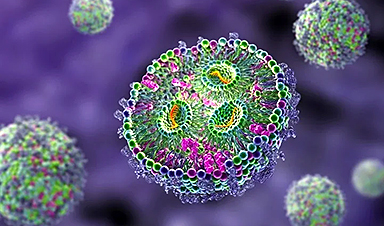
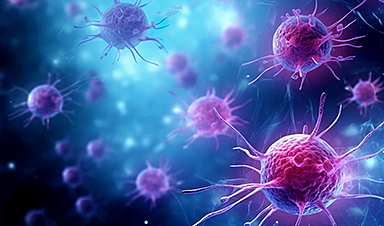







Leave A Comment